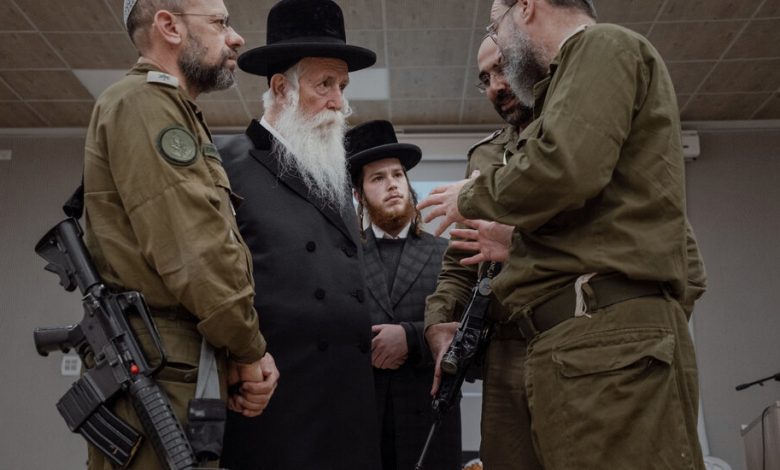Gaza War Is Shifting Ties Between Secular and Ultra-Orthodox Israelis

In a neighborhood of Jerusalem, ultra-Orthodox Jewish residents cheered a soldier returning from military service. At a religious seminary, similarly devout students gathered to hear an officer talk about his military duties. And at a synagogue attended by some of the most observant Jews in the country, members devoted a Torah scroll in memory of a soldier slain in Gaza.
The Hamas-led attack on Israel last October has prompted flashes of greater solidarity between sections of Israel’s ultra-Orthodox Jewish minority and the secular mainstream, as fears of a shared threat have accelerated the integration of some of Israel’s most insular citizens.
As Israel’s war in Gaza drags on and Israeli reservists are called to serve elongated or additional tours of duty, long-simmering divisions about military exemptions for the country’s most religious Jews are again at the center of a national debate.
But now, in the wake of the deadliest day of attacks on Jews since the Holocaust, parts of Israel’s rapidly growing community of ultra-Orthodox Jews, known in Hebrew as Haredim, are reconsidering their role in the nation’s fabric. Unusually high numbers have expressed support for or interest in military service, according to polling data and military statistics, even as the vast majority of Haredim still hope to retain their exemption.
Since Israel’s founding 76 years ago, Haredim have had a fraught relationship with their secular neighbors, in part because of the benefits the small ultra-Orthodox community was guaranteed around that time in an agreement between religious and secular leaders.
Unlike most Israelis, for whom military service is mandatory, Haredim are exempt from conscription to focus on religious study. They also receive substantial state subsidies to maintain an independent education system that eschews math and science for the study of Scripture.
